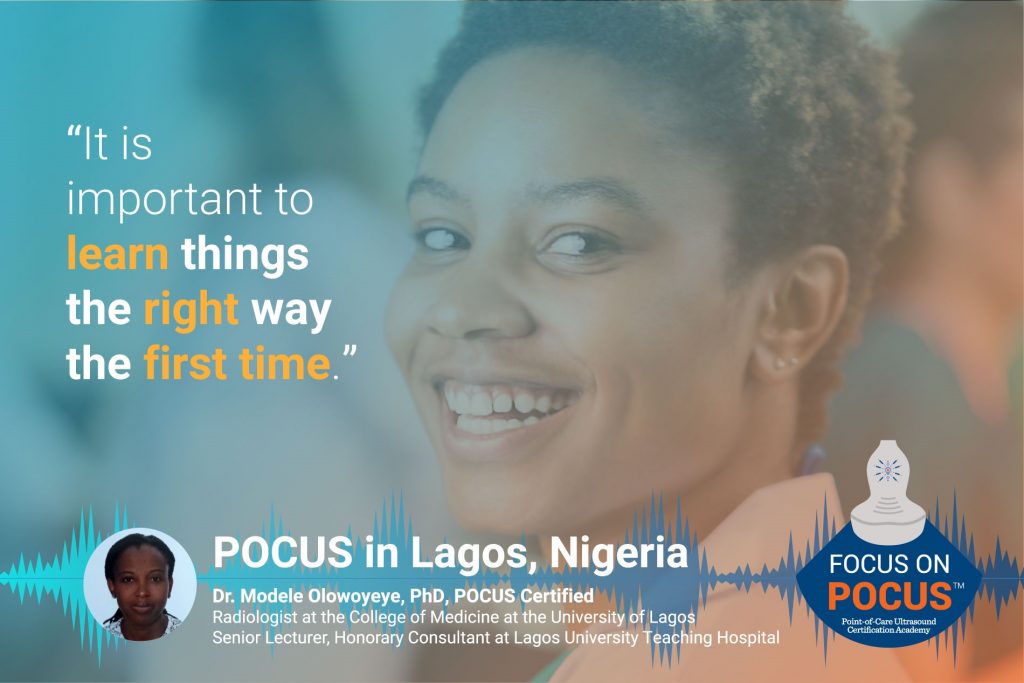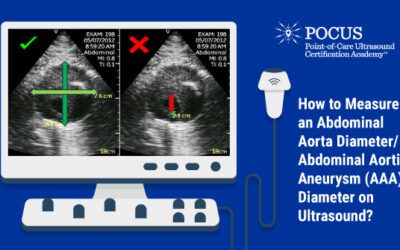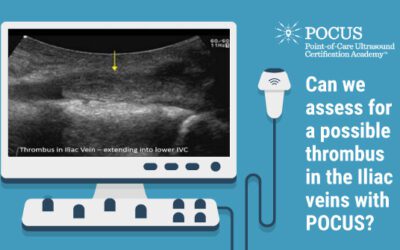11/26/18
 Point-of-Care Ultrasound (POCUS) is becoming a global movement. Listen to Dr. Modele Olowoyeye, PhD, POCUS Certified, Radiologist at the College of Medicine at the University of Lagos, Senior Lecturer, Honorary Consultant at Lagos University Teaching Hospital, talk about the state of POCUS and the challenges and the opportunities for it in Lagos, Nigeria.
Point-of-Care Ultrasound (POCUS) is becoming a global movement. Listen to Dr. Modele Olowoyeye, PhD, POCUS Certified, Radiologist at the College of Medicine at the University of Lagos, Senior Lecturer, Honorary Consultant at Lagos University Teaching Hospital, talk about the state of POCUS and the challenges and the opportunities for it in Lagos, Nigeria.
Looking for additional inspiration? Sign up for our POCUS Post™ newsletter to receive monthly tips and ideas.
Transcription:
James Day: Hello and welcome to the Point-of-Care Ultrasound Certification Academy podcast where we focus on POCUS. Here we will discuss all things related to point-of-care ultrasound, the practice, the trends, and its impact on healthcare. Our program will engage thought leaders who are defining global patient care with the stethoscope of the future.
James Day: James Day live from the Focus on POCUS studio. Today we are talking all the way across the great Atlantic, across the pond to Africa, Lagos Nigeria, and our honored guest today is Mondolay Olowoyehe. She is a radiologist in the Department of Radiation of Biology, radio therapy, and radio diagnosis at the College of Medicine at the University of Lagos.
James Day: She is also senior lecturer, honorary consultant at Lagos University teaching hospital in Nigeria, she holds a PHD in medical science that she got from the Institute of Medical Science of Toronto, Canada. Additionally, she is a trained diagnostic medical stenographer, and she is certified in emergency medicine point of care ultrasound with the Alliance for the physician certification of Vanson ADVCA. She is a doctor of many talents, and we are so glad to her. How are you today?
Dr. Modele : Hi I’m fine.
James Day: Good, good, I’m so glad to have you here it’s kind of exciting to be you know talking to you from across the pond here. We are outside Philadelphia.
Dr. Modele: Yeah!
James Day: And you are a busy physician, so I want to get right to it. So, Dr. Olowoyehe, I would like to say
James Day: I know I’m not doing your name justice, and you must forgive me.
Dr. Modele: It’s okay.
James Day: Okay so Dr. Olowoyehe I would like to ask you how can POCUS, point-of-care ultrasound be used in your area of specialty that is to say radiology.
Dr. Modele: As a radiologist I use ultrasound for image guidance if we are doing an image guidance procedure. Like a biopsy if you’re maybe trying to do an abscess drainage or other sort of interventional radiological procedures. Well I guess in radiology we are sort of comfortable with points-of-care ultrasound.
Dr. Modele: Or rather we are sort of comforted with the use of ultrasound because we have been using it for years right before other specialties started trying to use ultrasound for point-of-care use. We generally use it for interventional procedures.Dr. Modele: Though recently we have also started doing other things like maybe interventional oncology like tumor ablation things like that. Sometimes some of those procedures can be done on the ultrasound guidance. So as things keep evolving we see moving ultrasound to adapt to our needs.
James Day: Wow! So you’re using it for tumor ablation?
Dr. Modele: No, no, no. We are not doing that here in Lagos.
Dr. Modele: But I’m just saying that generally ultrasound is being used to guide procedures.
James Day: Oh absolutely.
Dr. Modele: To guide procedures generally. Yes.
James Day: I see. So you mean something like the basic internal jugular cannulation, or needle guided procedures and things of that nature.
Dr. Modele: Yes.
James Day: Do you guys ever use it to place target, maybe like a nuclear medicine study or radiologist type interventional invasive procedure?
Dr. Modele: Well we haven’t started using it here, but we’re working towards that because we know that those are opportunities that we can explore. So we’re sort of trying to get the set up in place to be able to do that. So that’s something we aspire to be able to do here in Lagos, but we’re not, at least in my center we’re not currently doing it but it is something we have in mind to be able to offer to patients.
James Day: So you know with that question Dr. Olowoyehe where do you see the technology moving to?
Dr. Modele: Well point-of-care ultrasound I see it becoming accepted by every physician, every person that attends to patients at the bedside just like everybody now uses the stethoscope for one thing or another. It’s going to be there as the immediate tool that health providers can use when providing care to patients so it’s going to keep evolving, it’s going to keep getting smaller, it’s going to keep getting easier to manipulate and it’s going to get more accepted by the front leaders of health-care providers.
James Day: So let me ask you something that’s specific to your region. Now I know Lagos Nigeria’s a very modern urban city but what I’m talking about maybe more in the rural areas of Nigeria. What are some of the key challenges of using point-of-care ultrasound today in rural Nigeria?
Dr. Modele: One of the main challenges I feel is availability of equipment.
Dr. Modele: Most of the rural areas where they have ultrasound scanners they have those old archaic scanners that probably is the last time you saw them was maybe when you went for an ultrasound in a museum or something.
James Day: Ha, Ha, Ha, yeah.
Dr. Modele: So people have these old scanners with four image resolution and with that they can’t really do, they do a bit, but it’s not as good as it could be. That’s for those who have them some don’t even have access to ultrasound scanners and in places where you have access to ultrasound scanners then the expertise may not be available. So you may not have someone who is trained to be able to properly take images and arrive at an ultrasound diagnosis of what’s going on. So that’s the challenge, and I know that there’s been some initiative where they are trying to provide hand-held portable scanners for midwives, and they now sort of take images and send electronically to some more experienced persons who will now guide them that oh maybe what you are seeing down there in the lower uterine segment is the placenta, if the patient has placenta previa you can’t still have to deliver vaginally, she has to go to a center where she can have a caesarean section done. So that sort of helps the midwife to know what to do in terms of managing obstetric patients.
James Day: Wow! Mondolay that is awesome. So what you’re saying is someone could be in the field and have a machine do a basic first trimester and then send it maybe by satellite phone or send it wirelessly maybe internet nearby, and the radiologist as yourself could read it.
Dr. Modele: Yeah.
James Day: And advise them. Oh that is incredible. That is great. Do you read any like that? As part of your job?
Dr. Modele: No, it is something I know that there is a project going on.
Dr. Modele: I don’t know the full details of the project but I know that there’s a project being sponsored by… I’m not quite sure now which organization but I know it’s in collaboration with GE and they are trying to provide these hand held ultrasound scanners to rural areas across the country and they are trying to see if they can use that model to improve care for pregnant women in places that regular ultrasound facilities are not readily available.
James Day: Wow! That’s a great application of point-of-care ultrasound. So do you have any tips for maybe others either in your region or globally who are first starting to learn point of care today. Do you have any tips for them?
Dr. Modele: Well, if learning point-of-care ultrasound. I think that if it’s a formal training program is available I would suggest that such a person should enroll in the formal training program.
Dr. Modele: I know that currently they are not so many formal training programs in point-of-care ultrasound. You have ultrasound schools, but most of them just teach you basic protocols, these are the pathology. They don’t really sort of take you to the next level in terms of point-of-care ultrasound but I know that as time goes on there will be more schools that would offer that kind of training. Or more programs that would offer that kind of training. Here in Lagos we are trying to put together a program for point-of-care ultrasound that would provide training for emergency physicians, critical care physicians and those in obstetrics and gynecology. The areas that right now we have a pressing need for point-of-care ultrasound. So I would suggest that someone who wants to get into point of care ultrasound should enroll in such a program that is available. Now, if such a program is not available I would suggest that such a person should identify someone who is skilled in point-of-care ultrasound and sort of shadow the person.
Dr. Modele: And sort of get useful feedback. Because it is important to learn things the right way the first time, it’s always better that way rather than trying to unlearn something that has been learned wrongly if I may say. So that would be my advice for anyone who wants to get into point-of-care ultrasound, to learn and learn it properly.
James Day: Well you would know because I noticed that you are also a diagnostic medical stenographer and that’s typically for stenographers. That’s much more detailed exam and training versus doing a point-of-care ultrasound where it’s trying to make just a clinical decision, so you know the difference between the two.
Dr. Modele: Yeah. The reason why I’m saying it should be a more formal training is that I’m a radiologist right.
James Day: Right.
Dr. Modele: And I hear people, and I see it happen where someone will come and say Oh we did a scan, and we saw this and they will come up with one very grave sort of diagnosis.
Dr. Modele: And when they now send the patient to you as an emergency and you do the scan you find out that there is really nothing there.
Dr. Modele: So it might be that maybe the person turned the transducer the wrong way, angled it the wrong way or something and was seeing something that wasn’t there, and now this critically ill patient has to get transported to a tertiary center, when it wasn’t necessary. So it’s important to learn properly, so that these kinds of things don’t happen. Another thing is that it’s also important to learn properly so that one can sort of take images that can be… If you say a patient has a particular problem now and you want to take an image representative of that pathology, if you are not really skilled or trained in terms of image acquisition you may not be able to take a representative image and as they say ultrasound is operator dependent. So whatever you saved in that image everyone is going to believe you.
Dr. Modele: If they can’t see what you’re saying you saw there well they doesn’t say okay, well you say you saw it there but I guess we’re going to have to do it again because the image you have doesn’t convince us based on looking at the image you have. So then the patient has to have another scan. But I think it’s important for people to learn how to do it properly even though all their job is taking a tiny peek at the part of the body they are interested in but it’s still important to know how to do that properly.
James Day: That’s awesome. Mondolay Olowoyehe, a radiologist in Lagos, Nigeria thank you so much. We really appreciate you taking the time to be here on today’s show, podcast. It is an honor to have you a brilliant physician on our podcast. Thank you so much.
Dr. Modele: Thank you so much for the opportunity. Thank you.
James Day: Bye bye.
Dr. Modele: Okay bye.
James Day: We hope you enjoyed today’s podcast Focus on POCUS. Be sure to tune in with us next week for more interviews with thought leaders that are on the forefront of global point of care ultrasound.
James Day: The thoughts and opinions expressed in this podcast are the views and opinions of the guests and not those of Intellios. This podcast is for information purposes only.
























